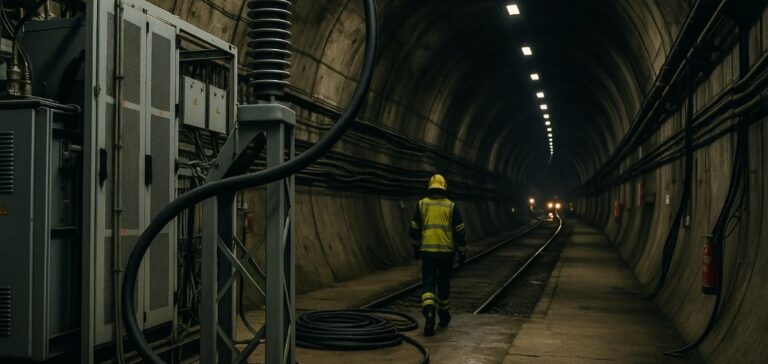Getlink, the operator of the Channel Tunnel, announced Thursday a 17% decrease in its revenue for Q1 2025, reaching €328 million, compared to the same period last year. This decline is largely due to the suspension of operations of its ElecLink cross-Channel cable, whose revenue dropped by 69%, amounting to €33 million.
The company explained that the decrease resulted from the “expected normalisation of electricity markets” as well as the suspension of ElecLink’s operations from September 25, 2024, to February 5, 2025, due to a malfunction of the interconnector. This failure required a cable replacement and the installation of a new joint.
Growth in other activities
Despite this interruption, Getlink’s other business sectors showed positive performance. The revenue of EuroTunnel, the subsidiary responsible for the transportation of vehicles and passengers through the Channel Tunnel, grew by 2%, reaching €254 million. However, the number of passenger vehicles transported fell by 3% compared to the previous year, while Eurostar train traffic increased by 4%.
In the freight sector, Europorte, the group’s rail freight division, also saw a 2% increase in revenue, reaching €41 million.
2025 Outlook
Getlink confirmed its forecast for 2025, with an estimated consolidated EBITDA (earnings before interest, tax, depreciation, and amortisation) of between €780 million and €830 million. However, the group did not mention the impact of new border control measures for European travellers that have been implemented since the beginning of the month.
“The Group’s historic activities – Eurotunnel and Europorte – continue to grow,” commented Yann Leriche, CEO of Getlink. He added that “the continued improvement in service attractiveness has led to increased market share in both passenger and freight sectors,” despite a sluggish economic environment.






















